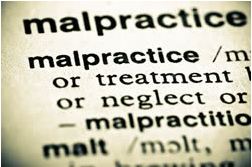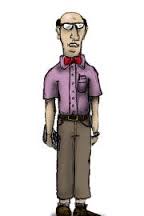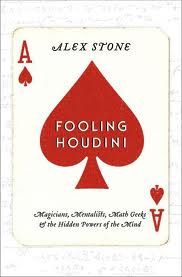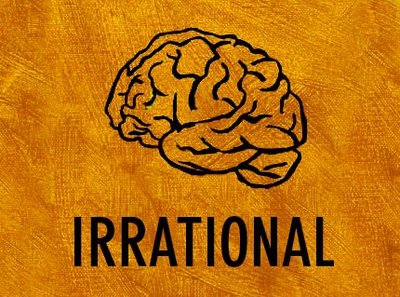 When is the treatment worse than the disease? When the high costs associated with care become a financial burden for patients and in many cases prevent them from protecting their health, contends Peter Ubel, MD, a 2007 recipient of a Robert Wood Johnson Foundation (RWJF) Investigator Award in Health Policy Research.
When is the treatment worse than the disease? When the high costs associated with care become a financial burden for patients and in many cases prevent them from protecting their health, contends Peter Ubel, MD, a 2007 recipient of a Robert Wood Johnson Foundation (RWJF) Investigator Award in Health Policy Research.
“We have reached a point where patients’ out-of-pocket health care costs can have more of a negative impact on their quality of life than some illnesses,” Ubel says, citing the thousands of dollars in deductibles, co-pays, coinsurance, and other charges that even burden people with health insurance. The potential financial devastation of the uninsured is also increasingly a factor, especially for people facing serious diseases.
Bringing Costs Out of the Closet
Ensuring that patients understand the possible side effects of a surgery, medical treatment or prescription drug is considered standard medical practice. Unfortunately, that’s not the case when it comes to warning patients about what they may have to pay for care. Engaging patients in a candid conversation about treatment costs is critical at a time when out-of-pocket costs for breast cancer treatment, for example, may run as high as $55,000, Ubel argues… (Read more at Robert Wood Johnson Foundation)
Do Malpractice Fears Cause Physicians to Order Unnecessary Tests?
 Ask physicians if our messed up malpractice system causes them to practice “defensive medicine,” and most will probably say yes – hard not to be paranoid with so many lawsuits affecting so many physicians. Some experts even contend that major reforms of our malpractice system could go a long way towards controlling spiraling healthcare costs. On the other hand, if you ask physicians whether they ever order unnecessary tests for their patients, I expect most would say “no;” after all, that would be unprofessional.
Ask physicians if our messed up malpractice system causes them to practice “defensive medicine,” and most will probably say yes – hard not to be paranoid with so many lawsuits affecting so many physicians. Some experts even contend that major reforms of our malpractice system could go a long way towards controlling spiraling healthcare costs. On the other hand, if you ask physicians whether they ever order unnecessary tests for their patients, I expect most would say “no;” after all, that would be unprofessional.
In other words, it’s hard to get a handle on the true costs of defensive medicine.
But recently, a group of researchers led by Emily Carrier came up with a clever way of getting closer to such an estimate. They connected two pieces of previously unconnected data: physicians’ survey responses from 2008 in which they expressed how concerned they were about malpractice, and the same physicians’ test ordering behavior over the same period of time. That latter bit of data comes from Medicare, which gives researchers access to what is called “claims data” – records of the bills Medicare receives from physicians and hospitals… (Read more and view comments at Forbes)
On Personality and Professions
 “An extroverted mathematician, goes an old joke, is one who looks at your feet while he’s talking.”
“An extroverted mathematician, goes an old joke, is one who looks at your feet while he’s talking.”
Alex Stone recounts this joke in his book, Fooling Houdini, which I wrote about in a previous post. As a philosophy major, I love to think there might be a college major more full of nerds and introverts than those of us who spent the end of our teen years reading Immanuel Kant.
(Click here to view comments)
Why PCORI Should Be Very Wary of Studying Medical Devices
 In the New York Times on Thursday, October 17, Topher Spiro wrote an important op-ed expressing why we need to hold onto the medical device tax that helps pay for parts of the Affordable Care Act. Spiro backs up his argument by pointing out how profitable the device industry is. To his argument I would also add the fact that this will provide the industry with more paying customers. Certainly it can afford to pay the taxes.
In the New York Times on Thursday, October 17, Topher Spiro wrote an important op-ed expressing why we need to hold onto the medical device tax that helps pay for parts of the Affordable Care Act. Spiro backs up his argument by pointing out how profitable the device industry is. To his argument I would also add the fact that this will provide the industry with more paying customers. Certainly it can afford to pay the taxes.
But I diverge from Spiro on a proposal he floated near the end of his piece:
“To complement these efforts, the new Patient-Centered Outcomes Research Institute [PCORI], a non-governmental body created by the Affordable Care Act, should pay for research that compares the effectiveness of devices so physicians can make informed choices. (Three years into its existence, the institute has initiated few, if any, studies of medical devices.”
Listen to me PCORI. Don’t follow this advice, unless you plan not to survive to celebrate your fourth birthday…(Read more and view comments at The Health Care Blog)
On the Psychology of Magic
 Not long ago, I had the pleasure of reading Fooling Houdini, by Alex Stone. It is a marvelous book, part memoir about how his obsession with magic pulled him away from his career in physics, but also a wonderful explanation of the psychology of how magic works its wonders. Get rid of all those images you have in your head about nerdy guys in capes performing at your children’s birthday parties. Stone doesn’t deny that magic is a nerdy pastime: “Like physics, magic is all about nerds playing god with the universe.” At one point of the book he even points out that at many magic conventions, there are more guys with mullet haircuts then there are women. But the dominant image of a magician you will develop after reading this book is of someone extremely skilled at playing with the limits of human perception.
Not long ago, I had the pleasure of reading Fooling Houdini, by Alex Stone. It is a marvelous book, part memoir about how his obsession with magic pulled him away from his career in physics, but also a wonderful explanation of the psychology of how magic works its wonders. Get rid of all those images you have in your head about nerdy guys in capes performing at your children’s birthday parties. Stone doesn’t deny that magic is a nerdy pastime: “Like physics, magic is all about nerds playing god with the universe.” At one point of the book he even points out that at many magic conventions, there are more guys with mullet haircuts then there are women. But the dominant image of a magician you will develop after reading this book is of someone extremely skilled at playing with the limits of human perception.
A good magician understands the psychology of belief. People will not believe something is remarkable if it looks too easy. Stone learned this lesson from one of his mentors, who made an analogy between magic and juggling:
World-class jugglers know to drop at least once during a performance, because it makes their act appear all the more difficult, drumming up suspense for the finale and driving home the message that they’re operating at the extreme edge of human potential.
For this reason, a real expert at card tricks won’t make it look like he is an expert at handling cards. He will shuffle the deck in what looks like a haphazard manner. He might drop some cards once in a while. But this feigned clumsiness is part of what makes the end result of his tricks that much more impressive.
As Stone points out, “Magic tricks can fool you even after you know the secret, because they exploit perceptual mechanisms that are etched into our brains.” For those who work in close contact with their audience, it is crucial to understand how people react to proximity, and to touch:
“Minor tactile cues can exert a measurable influence on our judgment, our perception of people and places, our decisions and social behaviors, even our willingness to part with cash. Waiters and waitresses who casually touch customers on the hand or shoulder for a second or even less at the end of a meal earn bigger tips and boost their restaurants’ ratings, as measured by exit surveys. A friendly pat on the shoulder from a broker makes clients less risk-averse. The chance that a grocery store shopper will agree to sample a new treat increases by 28 percent when the product demonstrator touches them lightly on the upper arm during the request. Shoppers who’ve been touched leave the store later, spend more, and rate the store more favorably on average. A slight, unobtrusive tap on the arm makes random strangers more willing to participate in mall intercept interviews and street surveys and predisposes them to bum you a smoke or comply with marketing requests. By promoting group cohesion, interpersonal touch also improves the performance of sports teams and enriches family life.”
See this concept demonstrated masterfully in a video featuring the world’s most entertaining pickpocket, Apollo Robbins.
If you want a better understanding of magic, and more importantly human nature, read Alex Stone’s book.
(Click here to view comments)
On Leadership: Why People Pick Boring Jobs
![]() Would you rather work in a stimulating, challenging job or a routine one filled with mundane repetition?
Would you rather work in a stimulating, challenging job or a routine one filled with mundane repetition?
Almost everyone would say they prefer the former. But a new study finds that people typically contradict themselves once salaries enter the decision. If the two jobs pay the same, people often opt to put out less effort, not more.
Researchers Peter Ubel of Duke University andDavid Comerford of the University of Stirling call their theory “effort aversion.”
They find that the amount of effort people are asked to put out—if they are not compensated accordingly for it—often holds priority sway over their choices. This finding goes against classic economic theory, which predicts that effort is just one factor among many that people consider when deciding what will yield the most “utility,” or relative satisfaction to the individual… (Read more at The Washington Post)
Doctors Urged to Talk About Costs of Treatment
 Physicians need to broach discussions about out-of-pocket costs with patients the same way they discuss a treatment’s side effects, public policy professors wrote.
Physicians need to broach discussions about out-of-pocket costs with patients the same way they discuss a treatment’s side effects, public policy professors wrote.
“Admittedly, out-of-pocket costs are difficult to predict, but so are many medical outcomes that are nevertheless included in clinical discussions,” Peter Ubel, MD, of Duke University’s School of Public Policy, and colleagues wrote.
They noted in a New England Journal of Medicine perspective published Wednesday that patients can experience considerable financial strain from out-of-pocket costs, with little or no discussion beforehand about potentially avoidable health-related bills… (Read more here)
Full Disclosure: Out-of-Pocket Costs As Treatment Side Effects

Here is a link to an article I co-authored in the New England Journal this week, with Yousuf Zafar and Amy Abernethy. In the article, we urge physicians to talk about out-of-pocket costs with patients, given that these costs can sometimes have a bigger negative impact on their lives than the kind of treatment side effects we feel compelled to discuss with them.
Here is also a podcast the New England Journal put together with me on the topic.
Thought of the Day from Albert Einstein
The most incomprehensible thing about the world is that it is comprehensible.
What Drives Me Crazy about the Popularity of Behavioral Economics
 A recent article in the Minneapolis Star and Tribune, my former hometown newspaper, made the kind of statement that is all too common in popular reporting on behavioral economics: “The idea that we humans are not that smart comes from behavioral economics.”
A recent article in the Minneapolis Star and Tribune, my former hometown newspaper, made the kind of statement that is all too common in popular reporting on behavioral economics: “The idea that we humans are not that smart comes from behavioral economics.”
Really? Behavioral economics discovered stupidity? Irrationality? The limits of human intelligence?
That is total nonsense. As I wrote about in my book Free Market Madness, basically every social science discipline other than economics had long ago recognized the limits of human rationality, and had made these limits central to their theories of human behavior. It was only economics that, in its mainstream, adopted the idea that humans are largely rational decision-makers. The field of behavioral economics grew out of research conducted by psychologists, and then adopted by economists who knew how to translate this research into the kind of language – often highly mathematical – that economists understand and respect.
To claim that behavioral economics discovered irrationality is baffling, and reveals both the dismal state of respect people have for fields like psychology, and the undeservedly loftier reputation we afford to economics.
(Click here to view comments)
